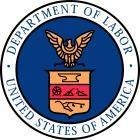Thousands of workers have dedicated their careers to building our nation’s nuclear defense program. As members of the Division of Energy Employees Occupational Illness Compensation, part of the Labor Department’s Office of Workers’ Compensation Programs, my colleagues and I assist current and former nuclear weapons workers who have become seriously ill due to workplace exposure.

This summer, the Labor Department displayed a nuclear weapons worker remembrance quilt. Each square has the name of a worker, facility where he or she worked and number of years served.
From New Mexico to Ohio to Tennessee, we host town hall meetings all across the country for these workers and their families to explain how to file a claim under the Energy Employees Occupational Illness Compensation Program Act − known as the EEOICPA − and what medical benefits are available once a claim is approved. These town halls are an opportunity to help families get some peace of mind, and alleviate some of the stress that comes with long-term occupational illnesses. We also host similar meetings for professionals and specialists in the medical community on how to best serve our claimants.
Here are some commonly asked questions we hear at these town hall meetings:
How do I file a claim under the EEOICPA?
DEEOIC has 11 Resource Centers nationwide to assist workers and their families with their claims. The centers provide information about the EEOICPA claims process, help claimants with the forms, and transmit documents to the DEEOIC district offices. Resource Center staff can assist either in-person or over the telephone, which can help those who can’t make it to an office. Claimants can call us toll-free at 866-888-3322.

What are the differences between Parts B and E of the EEOICPA?
Part B of the EEOICPA is geared toward people who worked directly for the U.S. Department of Energy, its contractors or subcontractors, a designated Atomic Weapons Employer, or a beryllium vendor. It provides lump-sum compensation and medical benefits to current and former workers who have been diagnosed with cancers, beryllium disease or chronic silicosis, and whose illness was caused by exposure to radiation, beryllium or silica.
Part E of the EEOICPA provides compensation and medical benefits to Energy Department contractors and subcontractors who worked at covered facilities and sustained an illness as a result of exposure to toxic substances.
What medical benefits are provided under the EEOICPA?
Once a work-related illness is accepted, current and former workers are entitled to medical benefits to cover the reasonable cost of treatment for their accepted illnesses. The medical benefits include reasonable and customary medical care, drugs prescribed by a physician and travel compensation directly associated with the treatment of a covered illness. Workers do not pay a deductible or co-payment. Some of the services that may be covered include: doctor’s office visits; medical treatments; consultations; in-patient and out-patient hospital visits; diagnostic laboratory and radiological testing; durable medical equipment; ambulance services; and travel to a doctor, hospital, clinic or other medical facility.
Survivors of qualified workers also may be entitled to benefits. The Labor Department has a list of facilities that are covered by the EEOICPA.
Do I need pre-approval from a claims examiner before beginning to receive home health care?
Yes, home health care services may be covered under the EEOICPA, but pre-approval by a DEEOIC district office claims examiner is required before a worker incurs the expense.
When can I apply for home health care benefits?
There are no restrictions on when a worker can apply for home health care benefits once a work-related illness is accepted. However, home health care is authorized based upon medical evidence from the worker’s treating physician confirming the need for home health care.
We know it’s hard to be ill and searching for medical care. People arrive at town hall meetings with diverse, and even painful, circumstances, and they’re looking for answers. That’s why we do our very best to ensure that each claimant has the information he or she needs to navigate what can seem like a daunting process. Our workers deserve no less!
Rhonda Robertson Chappelle is a branch chief within the Division of Energy Employees Occupational Illness Compensation, part of the Labor Department’s Office of Workers’ Compensation Programs.


 i
i


